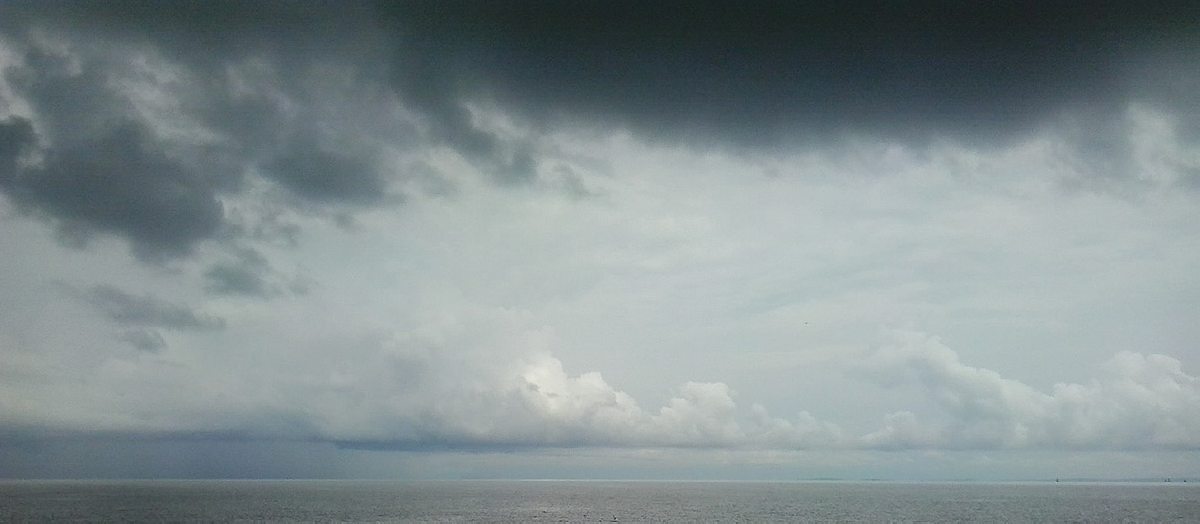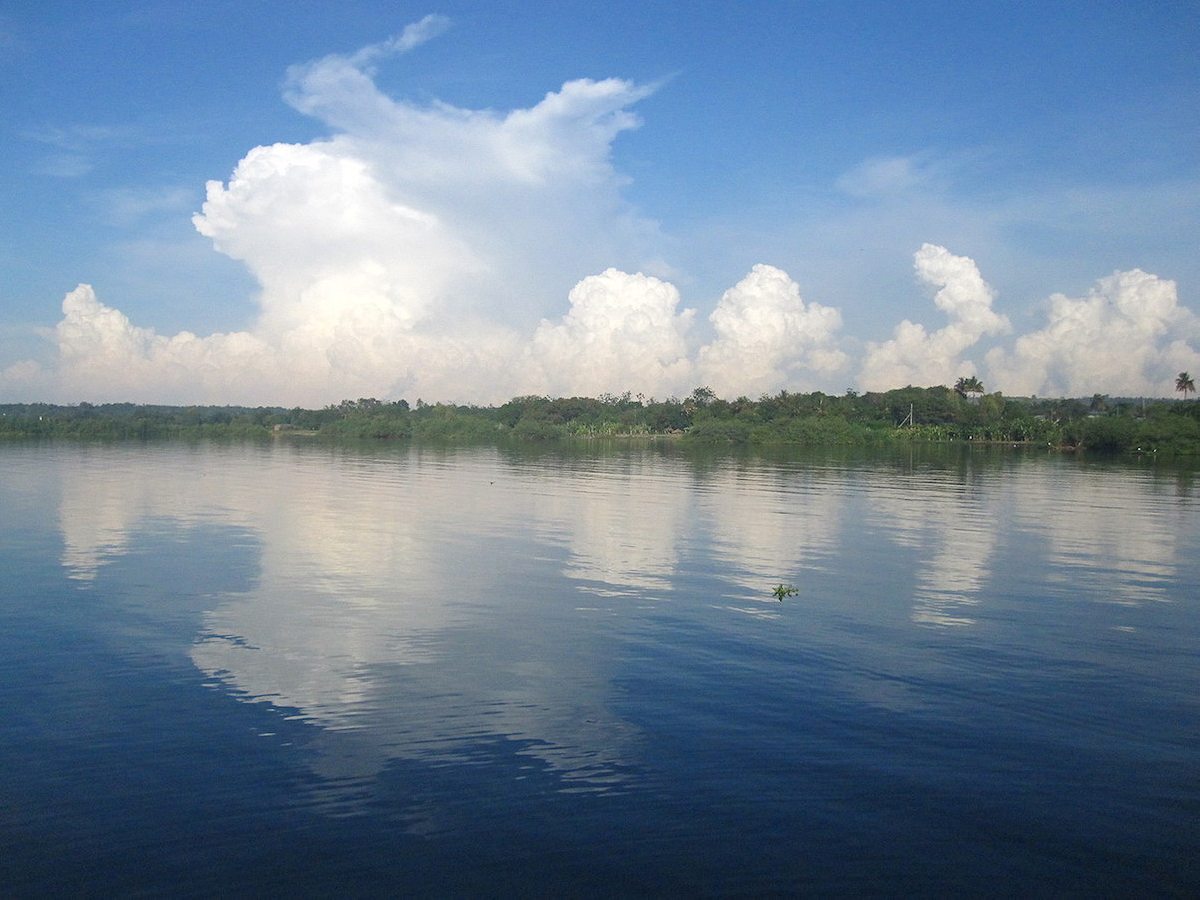Mark Weston on the surprises of being a Brit living on an island in the middle of Africa’s largest lake.
I recently moved from England to the small island of Ukerewe in the Tanzanian half of Lake Victoria, a hazardous four-hour ferry ride from the nearest large town, the nearest adequate health center, and the nearest place where anyone has heard of cheese.
One can be forgiven for not knowing much about Ukerewe and its watery environs. It took the cream of the West’s explorers two thousand years to stumble upon Lake Victoria—Africa’s largest lake and the world’s second largest—and a little longer to identify it as the main source of the Nile. Having done so, however, John Speke, Henry Stanley and the rest of Europe and America decided that finding it was enough, that there was no strong reason to hang around. Although it lies only a few kilometers from the fabled grasslands of the Serengeti, the lake sees only a trickle of overseas visitors, few of whom loiter for more than a day or two. Today, my wife Ebru and I are the only westerners on its largest island, and possibly the only ones to have lived here in the past half-century.
Foreigners on Ukerewe, a thirty-mile long green strip ringed by sandy beaches and strewn with piles of ancient boulders, have historically met with mixed fates. In 1858 an Arab slaver warned Speke about the dangers posed by its unfriendly people (the irony of slavers warning about unfriendliness was presumably lost on both men). In the early twentieth century German missionaries were driven off the island and their mission burned to the ground in the battle to rid Tanzania of its first European colonizers. A few decades later, as the struggle to repulse a second colonial wave intensified, activists from the Tanganyika African Association chased away Indian traders who were thought to be defrauding the island’s cotton farmers, with the tacit blessing of their British overlords.
Ukerewe has also served as a refuge.
At the same time, Ukerewe has also served as a refuge. Its long and hard-to-police shoreline has provided shelter to smugglers and outlaws fleeing Uganda and Kenya, and the recent establishment of an immigration office attests to its continuing role as a staging-post for job-seeking migrants from central Africa who cannot enter mineral-rich Tanzania via legal channels.
Today’s visitors are not guaranteed a warm welcome. Public sector workers regard the island as a punishment posting (continuing the tradition whereby miscreants from around the shore of Lake Victoria were banished here to serve out their days in exile). Many immigrants from the mainland leave at the earliest opportunity, complaining that the Kikerewe people (who make up the bulk of the island’s 300,000 population) are hostile to strangers and snobbish towards other tribes. Others are repelled by Ukerewe’s remoteness, its lack of cultivable farmland (most Tanzanians grow their own food, but population growth and deforestation in Ukerewe have left little fertile soil for outsiders), and the absence of anything much to do.
Again, however, there is a Jekyll to the island’s Hyde. Fishermen come here from across east and central Africa to plunder the rich waters of the lake. Some stay all year. Others set up seasonal fishing camps. Many have grown wealthy and built smart homes on the mainland. Sex workers follow the fishermen, and make a steady living succoring them in their loneliness. People with albinism, persecuted elsewhere in Africa and sometimes killed or maimed so that their body parts can be used in witchcraft, find in Ukerewe a less dangerous, more accepting home.
We are repeatedly reminded of our status as outsiders
In our three months here so far (we plan to stay for a year or two), Ebru and I have seen both sides of the island’s character. On the ferry ride over, the other passengers sitting with us on the hot metal floor of the deck stared at us intensely, peppering their conversations with suspicious comments. “Why are they coming?” they asked one another in Kiswahili. “They must want something from us. They see some potential here. They never come for nothing.” (We came because Ebru was offered a teaching job here – she drew that straw in a project covering thirty schools across Tanzania – and because it seemed a good opportunity to get to know rural Africa.) The atmosphere thawed only towards the end of the journey when we asked them to teach us a few words of Kikerewe. Suspicion turned to surprise that we spoke some Kiswahili and were interested in their own little-known tongue.

Yet even after three months, we are repeatedly reminded of our status as outsiders. Every day we walk to the nearby market and back, usually on the same kilometer stretch of dirt road. Every day at least a dozen children and a similar number of adults shout at us, as they rarely do at each other and as their compatriots do only occasionally in Dar es Salaam and the lake shore city of Mwanza, four hours and a world away by ferry. “Mzungu!” (European/white man) is the most common greeting, betokening either thrilled astonishment or affected disdain. “Good morning” (in English, regardless of the time of day) and the more practical “Give me money” are also frequently heard. I am not sure whether to feel proud that mzungu was one of the first words ever uttered by a toddler neighbor of ours.
In communities like this, where many are seduced by the lure of the west, the mzungu is an object of constant scrutiny as well as an exotic curiosity. Our behavior is closely monitored—women comment on the contents of our shopping bags as we pass, adolescents discuss our clothes, children peer through our windows. We are careful not to reveal too much, buying beer discreetly, for example (alcoholism blights the lives of numerous islanders), and smoking our occasional cigarettes indoors.

Life on the island also brings frequent reminders of the material gulf between ourselves and the locals. Our rented house, found for us by the principal of Ebru’s school, is one of only two in the vicinity with electricity, and the only one with a flush toilet, glass windows, surplus rooms and occasional running water. Our neighbors wash in Lake Victoria, draw water from boreholes, defecate into outdoor pits in the ground, and contract malaria, cholera and schistosomiasis. Their children rummage through our rubbish, and when it rains they place buckets around our house to collect runoff from the roof. Average life expectancy here is just forty-eight years, the average income less than fifty cents a day.
The limited range of produce in the market forces you to try new combinations
Here, unlike in big cities, it is easy to get to know one’s neighbors. Ours are mostly fishermen and their families. Excited at having foreigners in their midst, they are keen to talk, to tell us about the island (besides updates on fishing conditions, religion and witchcraft are frequent topics of discussion) and to ask us how the rest of the world lives (and why it tries so hard to stop Africans entering it). They are a support in difficult times and, in the absence of anything resembling a police force, our greatest security. Their many children are a constant source of company, noise and affection. And they help, too, when we fall ill. The island has just two doctors and one ambulance, and its two thousand witch doctors fill the gap. One neighbor gave me a porcupine quill to sniff to ease the symptoms of a cough, and we have been reassured that if we ever fall victim to a witch’s curse they will help us find a good traditional healer.
The difficulties of living on a poor, ill equipped island can have felicitous unintended consequences. The limited power supply makes refrigeration pointless, so we must buy fresh food every day. The Nile tilapia we are sold by a fisherman neighbor is usually still breathing, eggs are delivered straight from the hen. The limited range of produce in the market – one day a few okra pods, the next a single pumpkin, another day a carrot or two – forces you to try new combinations, to cook whatever you can get hold of. Ginger, garlic and garam masala make even dour cabbage taste refreshingly light; spinach fried with onions is simple and nutritious; green banana stew (see recipe below) is a specialty of the Lake Victoria region. If your inspiration dries up, market ladies are happy to share their recipes.
With no television or internet to keep them awake in the evenings and no electricity to light their houses, most of Ukerewe’s inhabitants are in bed by 10pm and up before dawn. Since we are incapable of sleeping through the crowing of half a dozen cocks, the yells of awakening children, the lowing of cattle and the baying of goats, we have had to reset our body clocks. Once you recover from the shock you realize that an early start to the day has its compensations. If it isn’t raining – and the thunderstorms on Lake Victoria have an impressive beauty of their own – the light under the tall sky is clear and bright without yet being piercing. The day begins as it goes on, slowly. As I sit now on my veranda with my notebook and a cup of tea, the sun yet to rise above the mango trees, a neighbor sits on her porch grating cassava, the family heifer grazing beside her. A young girl lolls on a rope swing. Women carrying bundles of firewood on their heads walk to market along the dirt road. At my feet sit three children who are too young for school, chatting to me in mercifully slow Kiswahili. Across the way their father sorts fish from the night’s catch on a canvas laid out on the ground.
With two years here, there is no hurry to see everything.
Nothing is rushed in rural Tanzania. Appointments are seldom kept, more seldom still kept on time. Time is taken over greetings and tasks, and large swathes of the day are devoted to staring into space, chatting with neighbors, playing with children or snoozing on the hard ground. Even the songs played on a thousand radios are satisfyingly long and repetitive. For us, in the absence of easy modern entertainments, walking to market, reading a book, playing cards or supping a coffee bought from an itinerant vendor have become significant events, rare markers of the passage of time. Occasional bouts of boredom cleanse the mind and increase one’s appreciation of the humdrum. The slow pace, moreover, suits a long stay. With two years here, there is no hurry to see everything, to meet everyone, to find everything out – we can ingest things slowly, allow the island time to reveal its secrets.
While lacustrine life advances slowly, the rest of Africa is changing fast, and in no area faster than that of communications. Ukerewe may be geographically remote, but there are now a couple of slow internet cafes on the island, reliable mobile phone coverage and a smattering of smartphones. A few islanders have heard of Facebook, although only a handful have accounts. Many support a British football team, and watching a televised match in a bar or grocery store can be a raucous experience. The outside world, even here, grows ever closer.
Ingredients (for two people):
5 green bananas
2 tomatoes
half an onion
half a carrot
half a hot green pepper
one 3cm piece of fresh ginger
¼ liter water
sunflower oil
salt to taste
Preparation: Peel and halve the bananas, chop the other vegetables. Heat the oil and add the onion, carrot, pepper, ginger, tomatoes and salt. Once the onion begins to soften, add the bananas and water and bring to the boil. Cover and simmer until the bananas turn yellow. Serve by itself or with rice.